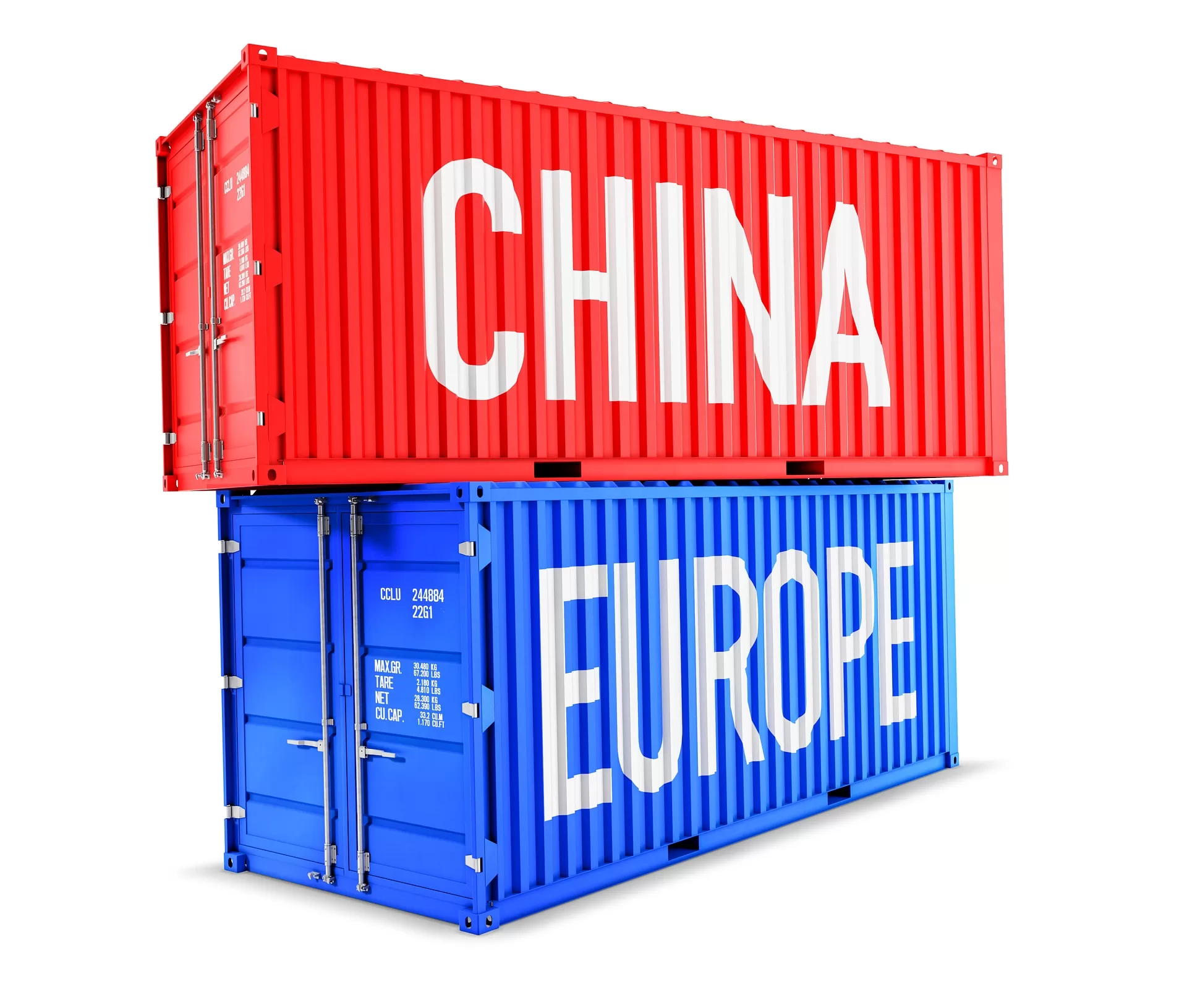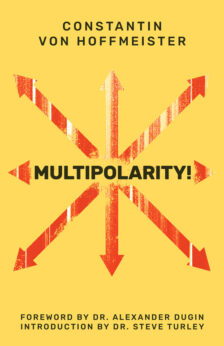The alternative media is full of the plans of the elite to push this or that world project. And seeing the discussion pieces from Davos, it would indeed seem so.
But when we look more analytically, we see something different. It is no longer the global elite, but the elite of Western civilisation. And that elite is undergoing a rapid loss of influence. Within five years we have seen the greatest loss of Western influence since the 16th century. The Western elites (by which term I mean the 3% of the Western world population who control big money, big media, and political power; in my books I refer to them as the ‘new aristocracy’) may be consolidating control over the populations of their own countries, but they are losing it everywhere else. Even Latin American countries have effectively disobeyed their US ‘ally’ and the US is unable to change their governments as before.
Indeed, the year of war in Ukraine has precipitated and visibly demonstrated radical changes in the ordering of world relations. A new world order is emerging. And it is nothing like the one George W. Bush once spoke of.
Pax Sinica
The industrial, scientific and power centre of the world is no longer New York, but Beijing. Chinese institutes now account for most of the world’s scientific discoveries. But even if the Americans, for example, could keep up with them in terms of the number of discoveries, they cannot, in principle, keep up with them in terms of industrial innovation and putting those inventions into practice. China has a much larger manufacturing capacity and hundreds of times more engineers than the US.
Hopes that the free market would be an environment more conducive to technological progress have proved unjustified. The combination of corporations and stock markets has been able to redirect innovation from technical areas into advertising and marketing, and has proved a more effective barrier to the introduction of technological innovations than any central control. China won. For a while.
China is also becoming the most politically influential nation in the world. They’ve been working at it for decades and it has paid off. Where American corporations and American non-profits were destroying local culture and plundering local sources, the Chinese were selflessly (or seemingly selflessly) building bridges, roads, railroads and hospitals. And they lent money. As a result, almost everyone is beholden to the Chinese, and absolutely everyone wants to have a great relationship with them, including most of the former American colonies.
A new world order is emerging where:
- China will provide the science and manufacturing capacity;
- Russia will provide mineral resources and agricultural production;
- Other regions will provide especially those natural resources;
- …and where – this is the main news – it will be respected that everyone can live their own way. If they want to eat each other in some cannibal country, nobody will interfere. Any ‘spreading of democracy’ or ‘spreading of free markets’ is out of the question, but neither is it replaced by any spreading of Confucianism.
Where, you ask, are Europe and the US in all this? Nowhere. A part of the world that lives solely on the heritage built by previous generations, and which is gradually sinking into poverty and barbarism. If the trend continues, it will soon have only one unique commodity to export – blonde prostitutes. Nobody cares unless they fire missiles at someone or organise a coup.
This will not be a turning point. We’ll just get poorer every year, more stupid every year, and have fewer relations with other regions every year.
Politicians, Fools and Suicides
How can European states respond to this change in the world order?
We see the example of Hungary and Austria, whose strategy could be summarised as follows:
- Accepting the new reality;
- Developing their own national strategy to survive and succeed in this new world;
- Striving for maximum self-sufficiency;
- Equal contacts with the whole world, with all its parts, regions and states of different configurations.
The opposite extreme is represented by the current Czech Republic and the Baltic States. The strategy is based on a denial of reality. Thus, the elite pretend (and force their citizens to pretend) that the world looks completely different:
- That the US still rules the whole world and is the richest country (because it can take anything from anyone for free).
- That others have no choice but to accept it. That they effectively have less freedom than the Soviet bloc countries had. All that has been added is talk of ’free markets’ and ’democracy’ and the pretence that states choose their economic and political bondage voluntarily.
- That in such a situation, the best strategy for a European state is to act as a lackey, to provide services to the American centre and wait for crumbs to fall off the table. That this can lead to a pretty decent standard of living if the people in that state try hard enough (in politically correct parlance this is called ‘competitiveness’ – I’m a more useful lackey than other lackies).
If such conditions actually prevail, the strategy for the nation-state would be the opposite of that pursued by Hungary and Austria:
- Systematic liquidation of everything of its own;
- Creating maximum dependence on multinational (American) corporations;
- Elimination of relations with all other parts of the world.
In the Baltics, it is part of a long-term effort to liquidate itself. Liberal policies over the last 20 years have done worse damage there than Stalinist repression. So many people have left those countries for the West that the de facto liquidation of those nations has already been decided. The only question is who will settle the territory.
The Czech Republic is more interesting because it has recently moved in this direction. In 2021, the Constitutional Court changed the rules during the election campaign to favour parties linked to Soros’s Open Society, and even then the new governing coalition won by good luck (the million votes for the opposing parties were not applied because they were split between parties that were too small). Without that, the Czech Republic would be going down a path similar to Hungary’s today.
Four Points for Revitalising the West
But a more interesting question arises. Is it still possible to reverse the development of Western civilisation as a whole? Of course it can! But it has to happen in individual countries. It is fundamentally impossible for a supranational institution to solve it. So it is possible that in the end the result will be a much smaller but still successful Western civilisation.
But the following would have to happen:
First, social conditions will have to change so that different types of people will rise to the top than has been the case. Using the words of Ivo Budil (Czech professor of anthropology), the idea is to turn from social creativity to technical creativity. How is that so essential? Technical creativity means that the mind is focused on solving a problem, and that one gets more or less unambiguous feedback: it works or it doesn’t work. Everyone from the bricklayer to the veterinarian to the space shuttle engineer has this approach, and it can be also applied in most humanities disciplines.
Social creativity is focused on influencing (manipulating) other people, and there is no clear objective measure of success or failure, that is, I persuaded – I did not persuade; I impressed – I did not impress; I convinced – I did not convince.
Simply put: the rule of advertising experts must be replaced by the rule of engineers.
Second, manufacturing, science, and agriculture must be more important than banking, commerce, politics, and advertising, and compensation must match that.
Third, education must refocus on the growth of knowledge and performance and on the natural sciences.
Fourth, national societies must become more homogeneous. As Christopher Lasch once wrote, differences in wealth and income can only be tolerated so long as they do not create barriers between people. Never mind that artists earn more than workers – as long as it doesn’t lead to them creating their own world and us losing the ability to communicate with them. Among other things, this means that the greater the differences in wealth and income, the more we need to invest in a common culture, in maintaining common ideals and in promoting a common lifestyle.
This would be sufficient to turn the development of Western countries from decline to new growth.
But these are things that will not happen on their own. They will not come about through the play of market forces, nor will they be created by any spontaneous order. They are a matter of political leadership driven by a clear vision and determination to push them through against the resistance of those groups that temporarily profit from the decline of the West.
I remind you that one of the key features of political leadership is that it does not go with the crowd. We cannot talk about leadership where a politician or activist finds out what the people want and then advocates it for the people. When he finds that people reject migration, he speaks out against migration. Then he finds out that people hate Russians, so he is against Russians. Then he finds out that people are fed up with lock-downs, so he opposes lock-downs. Then he finds out that people are annoyed by expensive energy, so he is against expensive energy. That’s how political professionals behave, and I don’t criticise them for it. Some of them do their jobs very well, and I’m grateful for that work.
But the leader is the one who comes up with the vision himself and who has yet to gain the people’s support for it. A leader is one who is able to stand up to the crowd if the crowd acts like a bunch of morons. The name of Viktor Orbán certainly comes to mind, but two generations ago this was common in the Western world.
That is what is actually at stake today. Whether a group capable of generating such personalities will be formed and whether a social class will be formed on which such personalities can rely. Social class characterised by rationality, purpose and determination to defend their own freedom. This has always been the foundation of the success of the West.








“Hopes that the free market would be an environment more conducive to technological progress have proved unjustified. The combination of corporations and stock markets has been able to redirect innovation from technical areas into advertising and marketing, and has proved a more effective barrier to the introduction of technological innovations than any central control.”
Years ago, I read an article in Foreign Affairs about the USA losing ground to China and India in STEM subjects, and whether they should be concerned. The response from some Academic experts was that the USA was moving towards marketing and management, and that losing ground in STEM was not necessarily a problem. I was immediately suspicious, because at the end of the day, creativity and innovation is based on solving problems, and actually making things. I also believe that a nation’s overall success depends on strength in both, as it’s not an “either/or” paradigm. The USA has been losing ground for years in STEM areas, and you see this with children and college students, who lack overall discipline when compared to their Chinese counterparts – Americans in university are more interested in the “experience”, and partying all the time.
I love that you come up with ideas of how to surmount this, I want more details lol.
Your last article inspired me to start writing children’s books as a lateral form of indirect social influence. Still waiting for my first one to be illustrated.
I highly doubt that china will exert the same level of hegemonic power as the west because it will never have as far reaching or effective military (and this is for the best since our military industrial complex is out of control).
It’s interesting that they are innovating the most in science but this doesn’t tell me much about what they are making. It’s always seemed that much major innovation is made in war and then more consumer driven extensions of that innovation are made in peace. What is their main focuses in innovation that will lead to their external force amplification? I don’t believe innovation in and of itself is a mark of power since innovating can also lead to decadence and decay or overreach in their own internal desire for control.
Global markets and currency are inherently harmful to western civilization so monetary competition and power are not the only types nor do I think the west being more isolated financially or facing financial issues would have a negative effect in the long term. What we need here is a grounding back to the land and to more natural forms of interaction/community. Westerners would likely do much better with short supply chains than these long complex ones.
Politicians follow perceived popular opinion and the perception of popular opinion is created by the media and academia so a major problem with politicians following the people is that the mob and elites have fused. We also are losing demographics rapidly, which is something not addressed in this. I love the recommendations but the question is how to get there?
How can a social group be formed unless we find ways to prevent people from actually watching the media? Part of the strength of people comes in close proximity, not dispersed. Plus most means of communication of information are dominated by the current zeitgeist. It seems a leader rising would be predicated first on this part so what are the effective ways of creating this?
In the west there is also enough land that if we had actual access to the land (it’s made arbitrarily scarce) then agriculture would be no issue. Westerners are extremely industrious and already competing in local markets for basic goods with all odds stacked against them.
Pulling away from global economics and becoming more isolationist is also a possibility. Western innovation can be used to increase the power of a Chinese hegemony especially if we don’t change our cultural conditions and allow every innovation to be stollen. A post Keynesian economic system of only specific trade when needed for the whole and less manufacturing more craftsmanship for non-necessities would be an interesting alternative.
Saying the emphasis is on results doesn’t translate over to results. Do any of these suggestions have a result oriented outline for enacting them? That is specific to the strengths and weaknesses of the west that greatly differ from Europe (we have more land and an armed population that isn’t easy to invade or control by ports for example so the risk of overt control of China is not there).
Sometimes the outlook needs to change to effect results. Monetary control is the only form we currently see in this zeitgeist that was created by the west but we are at a completely new point in history. I go is to say under a “multipolar” world if this will be the case or if we will see fracturing etc. a hyper focus on money as power helps create it and closes other avenues of future possibilities… same with science a a blanket quantitative statement tells me very little qualitative information.
The real surprise for me has been China’s emergence as a diplomatic power. Helping settle the Saudi / Iran conflict seemed like an impossible task (although Russia certainly played a role in this.) These are startling times we live in.
That in itself is extremely interesting. Throughout its history, China has been closed and has never had the ambition to interfere elsewhere. Quite possibly we have made a difference by continually trying to colonise China. And that we have created or awakened something that will not be easy to live with at all.
That’s insightful! Do you expect they will continue to make progress as a mediator?